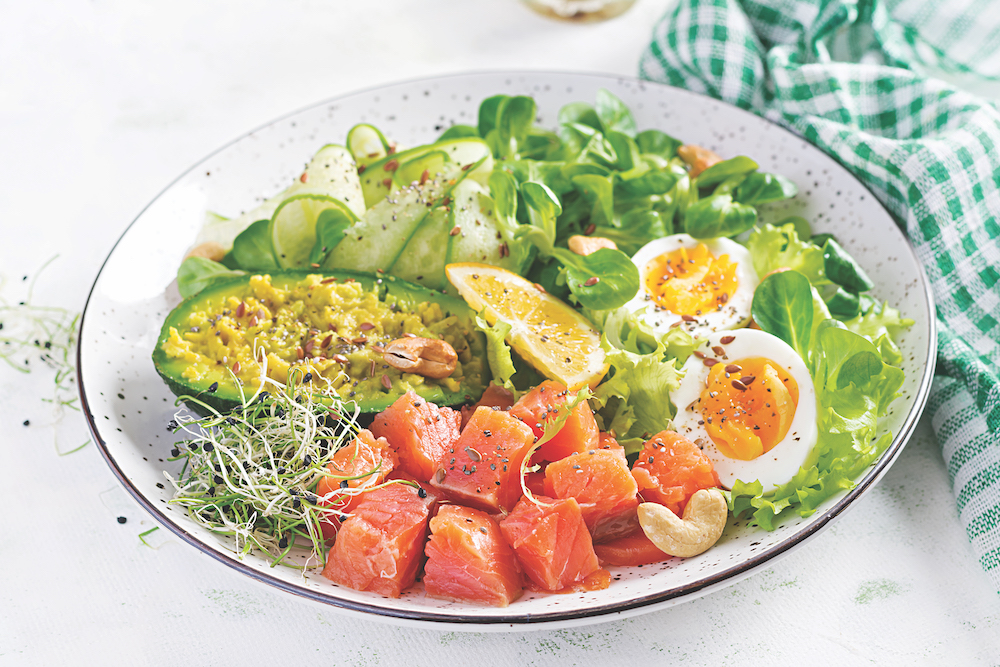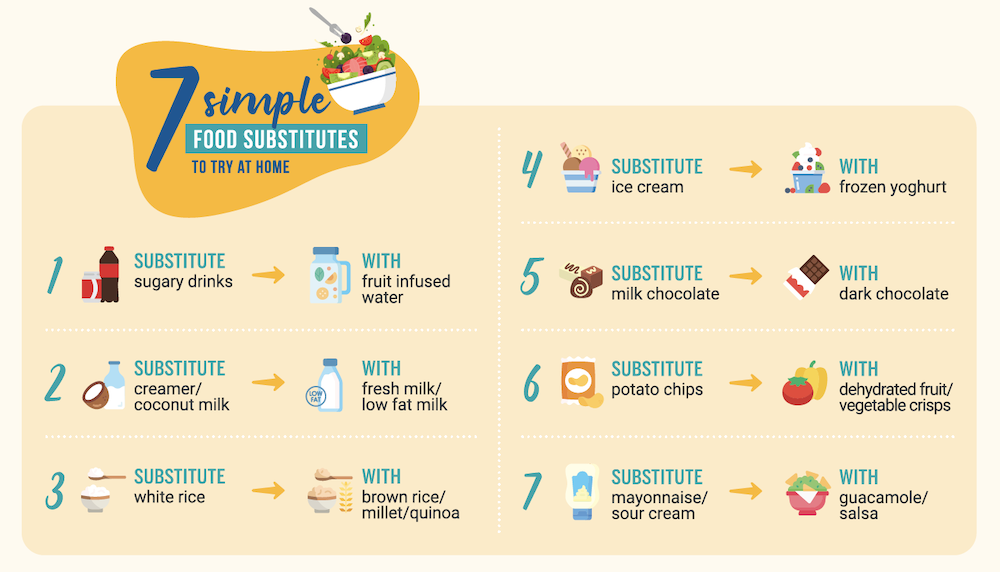News & Articles

Healthy Foods Swops for Better Nutrition

Healthy eating does not have to be complicated or time-consuming. Making small changes to your diet can make a big difference to your overall health. Senior Dietitian Chloe Ong explains more.
If you love the idea of making lifestyle changes to improve your health, but feel less than enthusiastic about cutting down on your favourite foods you are not alone.
Fortunately, you do not have to make drastic changes to your diet or sacrifice flavour to adopt healthier eating habits. Making a few simple replacements to your recipes can allow you to continue enjoying your favourite foods in a healthier way.
Here are some ways you can make healthy food substitutions everyday:
Know what to cut back on, or eat more of
Depending on your personal health goals, food substitutes can help you better manage your overall food intake and support your daily nutritional needs.
This can look like cutting back on sugary ingredients to improve blood glucose levels, adding more fiber to your diet to improve your gut health, or just simply switching out an ingredient with a healthier alternative.
What to eat more of:
Healthy fats can help improve your cholesterol profile, minimise risk of heart disease, and improve skin, immunity and brain health. Some examples of healthy fats include oily fish like salmon, mackerel, sardines, tuna and trout, which are low in saturated fat and high in omega-3 fatty acids. Healthy fats can also be found in avocados, nuts, seeds, olive oil and sunflower oil.
Lean protein is essential for growth and the maintenance of body tissue and general body function. Some examples include chicken breast without skin, turkey, lean meat, fish and shellfish, eggs, low fat dairy products, tofu and legumes.
Fiber helps maintain gut and digestive health. It also helps manage blood sugar levels and cholesterol. Some examples of fiber include whole grain products, fruits and vegetables.
What to eat less of:
Red meat and processed meat. Limit yourself to 500 grams of cooked red meat a week and avoid processed meat as much as possible.
Sugar. Try to avoid or limit added sugar. This includes food or drinks that are already sweetened.
Saturated fats such as butter, cream, palm and coconut oils, and animal fats in meat and animal skin. Substitute saturated fats with unsaturated fats and oils such as canola oil, soybean oil or olive oil, as they are more beneficial for your health.
Compare food labels to make healthier grocery choices
Not sure if you are selecting products that are more suitable for your health? The next time you go grocery shopping, you may find it helpful to compare food labels to help you choose products or brands that help meet your health goals.
Compare the nutrition content on similar food items to help you select healthier alternatives. Make sure you compare them on the same weight basis. Looking at the serving size information can also help you manage your serving portions.
Choose healthier cooking methods
The way you prepare your food can also make a big difference to your health. Choosing healthier cooking methods such as boiling, steaming, poaching, stir frying, braising or broiling can improve the healthfulness of your dishes without making drastic changes to your recipe.
Choose condiments made from natural ingredients
Healthy eating doesn’t have to be bland and tasteless. Adding condiments or natural herbs and spices to your meals is a great way to add flavour to your dishes. In addition, some may even add health benefits.
However, ditch condiments and sauces which are highly processed and added with artificial additives, or which are high in salt and/or sugar. Instead, use ginger, turmeric, lemon, tomatoes, chilli, cilantro, pepper and cinnamon to enhance the taste of your food naturally.
In summary, there are many simple ways you can switch up your eating and cooking habits to make a positive impact on your health. However, it is important to note that food substitution alone is not enough to keep a healthy and balanced lifestyle.
Maintaining overall health through diet involves gaining knowledge about food, keeping a balanced diet, eating in moderation, and making healthier choices in your overall lifestyle. Starting with small, positive changes can gradually inspire you to make further healthy changes to your lifestyle in the long-term.

| POSTED IN | Cancer Prevention, Nutrition |
| TAGS | cancer diet & nutrition, healthy food & cooking, healthy lifestyle |
| PUBLISHED | 01 December 2022 |
